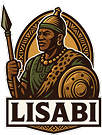Lisabi Festival

Lisabi Festival in Abeokuta
A Celebration of Courage, Heritage, and Unity Among the Egba People
The Lisabi Festival is one of the most significant annual cultural celebrations in Abeokuta, Ogun State, Nigeria. Dedicated to Lisabi Agbongbo Akala, the legendary Egba warrior revered for liberating the Egba people from the dominance of the Oyo Empire in the 18th century, the festival is both a historical commemoration and a vibrant showcase of Egba identity, culture, and community pride.
Historical Significance
Lisabi is celebrated as a fearless leader and tactician who mobilized the Aaro age-grade society to challenge and ultimately overthrow the oppressive rule of the Oyo-appointed Ilari tax agents. His bravery, sacrifice, and leadership not only restored dignity to the Egba people but also laid the foundation for their self-determination and later migration to Abeokuta.
The Lisabi Festival serves to honor his memory and preserve the legacy of resistance, patriotism, and unity that he embodied.
Cultural Activities and Events
- Traditional Rites and Libations: Elders and custodians of Egba tradition begin the celebrations by offering prayers and libations at Lisabi Forest (Igbo Lisabi) in Oba village, believed to be where Lisabi vanished into the earth. This is considered a sacred moment, invoking the warrior’s spirit.
- Parades and Cultural Displays: Various Egba clans—Egba Ake, Owu, Gbagura, Oke-Ona, and others—showcase their unique identities through colorful masquerades, drumming, dance, and traditional attire.
- Age-Grade Processions (Aaro): A key cultural component, the age-grade groups that Lisabi once led participate in parades, displaying their organizational strength, unity, and contributions to community development.
- Royal Processions: The Alake and Paramount Ruler of Egbaland, along with other traditional leaders, grace the occasion in full regalia, reinforcing the royal heritage of the Egba people.
- Sporting and Youth Activities: Sporting events, quiz competitions, and talent showcases engage younger generations, fostering unity and cultural pride among Egba youth.
- Community Awards and Development Projects: The festival also recognizes outstanding individuals and commissions community improvement projects led by Egba sons and daughters at home and in the diaspora.


Tourism and Economic Impact
Lisabi Day attracts thousands of participants from across Nigeria and abroad, including Egba indigenes in the diaspora. The festival boosts local commerce, hospitality, and tourism in Abeokuta, as visitors patronize markets, hotels, and cultural sites such as Olumo Rock and Ake Palace.
Modern Relevance
More than a cultural tradition, Lisabi Day is a platform for reinforcing Egba unity, advancing communal development, and educating younger generations about their roots. It continues to serve as a rallying point for Egba identity, while embracing innovation and inclusiveness through youth involvement and contemporary celebrations.
The Lisabi Festival is more than just a festival; it is a living tribute to the values of courage, unity, and service to the community. As the Egba people gather each year in Abeokuta to honor their hero, they also recommit themselves to his ideals, ensuring that the legacy of Lisabi Agbongbo Akala lives on for generations to come.
